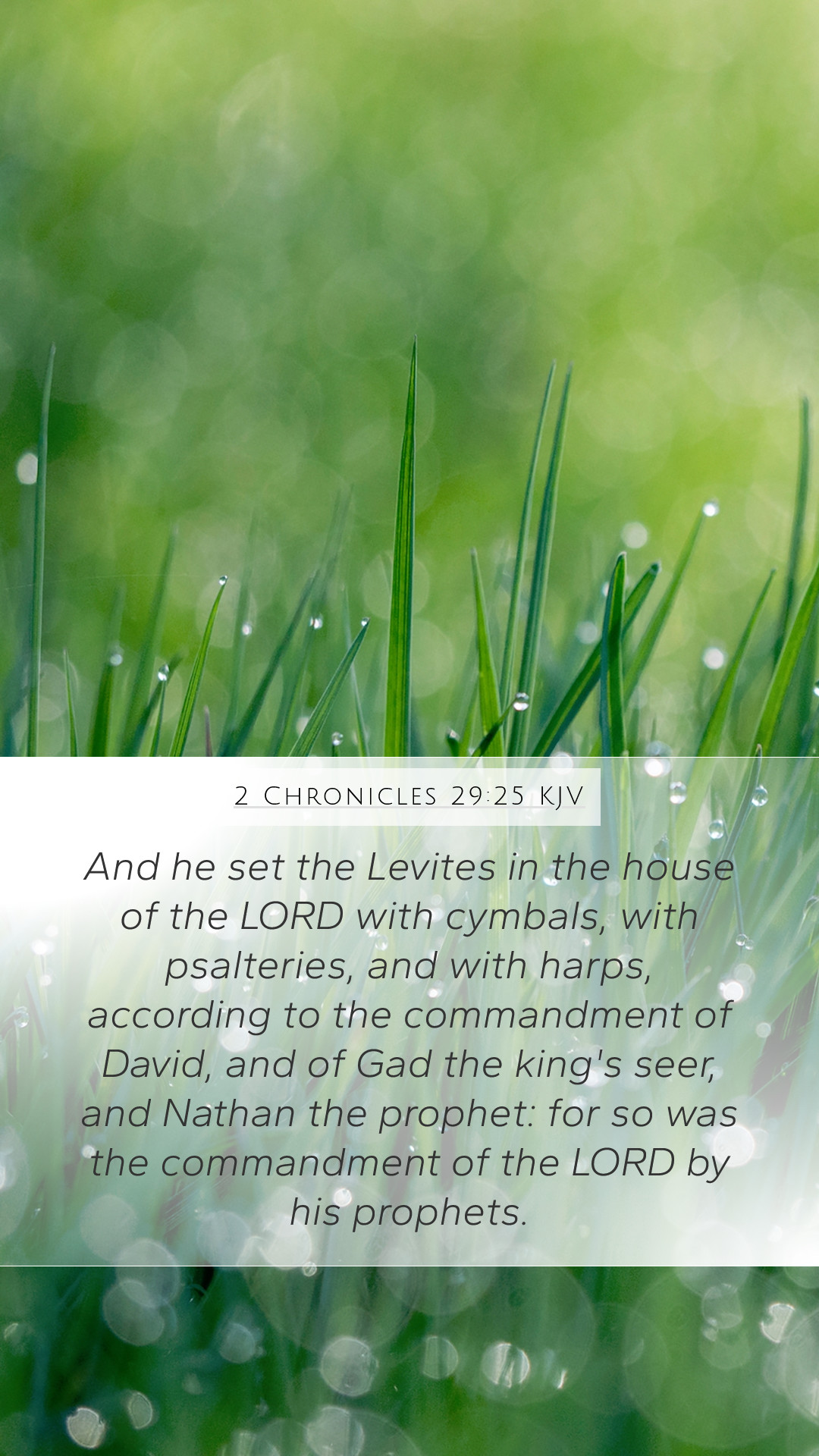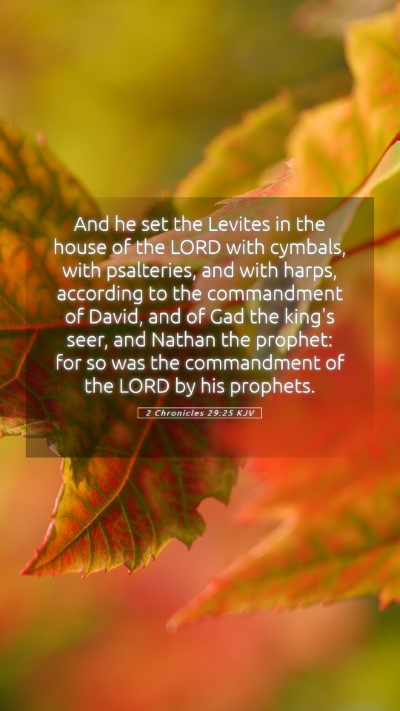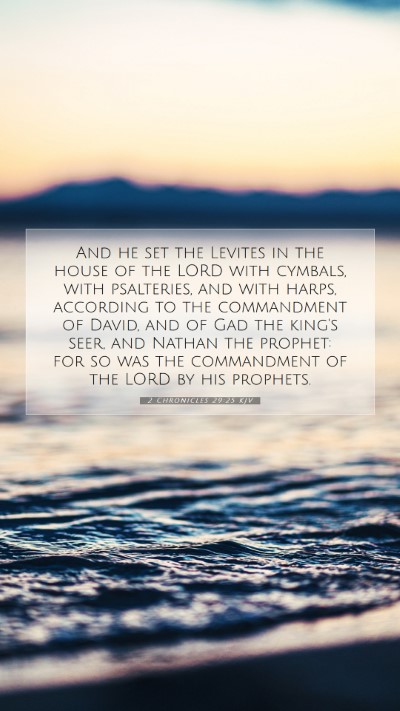Understanding 2 Chronicles 29:25
2 Chronicles 29:25 states: "And he set the Levites in the house of the Lord with cymbals, with psalteries, and with harps, according to the commandment of David, and of Gad the king's seer, and Nathan the prophet: for so was the commandment of the Lord by his prophets." In this verse, we observe King Hezekiah's devotion to restoring worship in the temple following years of neglect.
Context and Background
This verse is situated during a significant reform in Judah, led by King Hezekiah, who aimed to revive the nation's relationship with God by reinstating proper worship practices and temple rituals. Such reforms were essential in the context of the spiritual decay caused by previous kings.
Key Themes and Insights
- Restoration of Worship: Hezekiah's actions reflect a commitment to restore genuine worship and service to God, emphasizing the importance of having the proper musical elements in liturgy.
- Leadership and Direction: The involvement of Levites and adherence to the commands from key figures (David, Gad, Nathan) showcases the leadership directed by divine authority.
- Prophetic Approval: The commandment given through prophets underlines the belief that worship should align with divine will as understood by prophetic guidance.
Bible Verse Explanations by Commentators
The verse has intrigued many scholars, and their interpretations reveal deeper meanings. Here are combined insights from Matthew Henry, Albert Barnes, and Adam Clarke:
Matthew Henry's Commentary
Matthew Henry emphasizes the importance of music in worship, indicating that King Hezekiah's establishment of Levites with instruments signifies the reinstatement of joyful and reverent praise to God. He highlights the continuity of worship practices that date back to David, elucidating the value placed on tradition in worship.
Albert Barnes' Notes
Albert Barnes focuses on the significance of prophetic guidance in Hezekiah's decisions. He points out that the directives from David, Gad, and Nathan reflect a continuity of God's commands and an acknowledgment of the critical role of prophets in guiding the people in their relationship with God.
Adam Clarke's Commentary
Adam Clarke highlights the array of instruments and their symbolic meaning in worship, suggesting that they facilitate a deeper spiritual connection during temple services. He asserts that the involvement of the Levites in this reformation serves to restore the rightful order of divine worship as prescribed in the Law.
Cross References
- 1 Chronicles 15:16: Details David's preparations for worship with musical instruments.
- Psalm 150:3-5: Calls for the use of various instruments in praising the Lord.
- 2 Kings 21:3-7: Discusses the previous idolatrous practices that Hezekiah is now counteracting.
Application of the Verse to Daily Life
This verse encourages us to reflect on our worship practices and the importance of aligning them with biblical teachings. In our modern context, it prompts us to consider how we incorporate elements of praise and worship into our lives, ensuring they are meaningful and reflect our commitment to God.
Conclusion
In conclusion, 2 Chronicles 29:25 encapsulates foundational themes of restoration, divine direction, and the role of worship in a believer's life. Understanding Scriptures like this one helps believers engage with their faith more deeply, providing both a historical context and practical application for today.


